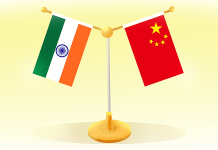
On May 13, 2025, Madhya Pradesh Minister Vijay Shah sparked outrage with communal and sexist remarks about Colonel Sofiya Qureshi, a decorated Indian Army officer briefing the nation on Operation Sindoor. Shah’s comments, calling Qureshi the “sister of terrorists” who avenged the Pahalgam attack, led to a Madhya Pradesh High Court-ordered FIR on May 14 under Bhar paese Nyaya Sanhita Section 152 for endangering India’s unity and IPC Section 196 for promoting enmity. The case, coupled with vicious online trolling of Qureshi, Foreign Secretary Vikram Misri, and others, raises questions about whether free speech protects such attacks. This article explores the legal and ethical boundaries of free speech in the context of the Qureshi trolling.
In This Article:
The Incident: Trolling and Political Remarks
Colonel Qureshi, alongside Wing Commander Vyomika Singh, briefed media on Operation Sindoor, India’s May 7–8, 2025, strikes on terror sites in Pakistan and PoK, retaliating for the April 22 Pahalgam attack that killed 26. Shah’s speech in Mhow, framed as praising Qureshi, instead linked her Muslim identity to terrorists, prompting Congress leaders like Mallikarjun Kharge to demand his sacking for insulting the armed forces and women. The High Court condemned Shah’s “language of the gutters” as dangerous, noting it encouraged separatist sentiments.
Online, Qureshi faced a troll storm. A deepfake video, flagged as AI-generated by Factly.in, falsely showed her saying, “I am a Muslim, but not a terrorist,” aiming to inflame communal tensions. X posts also targeted Misri’s daughter and the widow of Navy officer Vinay Narwal, killed in Pahalgam, for urging unity. The Hindu reported this trolling as part of a broader disinformation wave post-Operation Sindoor, with Pakistan accused of fueling fake narratives.
Free Speech and Its Legal Limits
Free speech, enshrined in India’s Constitution under Article 19(1)(a), is not absolute. Article 19(2) restricts speech that threatens public order, national security, or incites enmity. The Qureshi case falls under Bharatiya Nyaya Sanhita Section 152, which carries a life term for acts endangering sovereignty, and IPC Section 196 for promoting communal discord. The Information Technology Act, 2000, and draft Digital Personal Data Protection Rules, 2025, further penalize cyberbullying and doxing, as seen in the 2024 Shaviya Sharma case, where the Delhi High Court prioritized privacy over unchecked trolling.
Globally, free speech debates, like the 2018 U.S. case against neo-Nazi Andrew Anglin for unleashing a “troll army,” show courts limiting speech that incites harassment or violence. The Madhya Pradesh High Court’s swift action against Shah aligns with this, signaling that trolling or remarks undermining national unity, especially against military figures, cross legal lines. X user @Natsecjeff noted the BJP leader’s remarks as part of a pattern, reflecting a toxic online culture.
Does Free Speech Protect Trolling?
Free speech advocates argue it includes controversial or offensive speech, as per the U.S. Supreme Court’s 2024 ruling against government control of social media editorial decisions. However, trolling that incites harm, spreads disinformation, or targets individuals like Qureshi based on religion or gender exceeds protected speech. The deepfake video, debunked by AI tools, exemplifies deliberate misinformation, not expression. The Hindu emphasized the need for stringent anti-troll laws, noting India’s low internet literacy fuels hate speech.
Congress’ Umang Singhar underscored that military officers like Qureshi, who led a 2016 multinational exercise, represent national unity, not religion. Trolling her undermines the armed forces’ integrity, a red line in India’s legal framework. Shah’s apology, claiming respect for Qureshi “more than my sister,” failed to quell outrage, as the court deemed his remarks prima facie offenses.
Implications for Free Speech
The Qureshi case highlights the tension between free speech and responsibility. While Shah’s remarks and online trolling claim free expression, their communal framing and impact on national morale justify legal action.
-By MANOJ H



